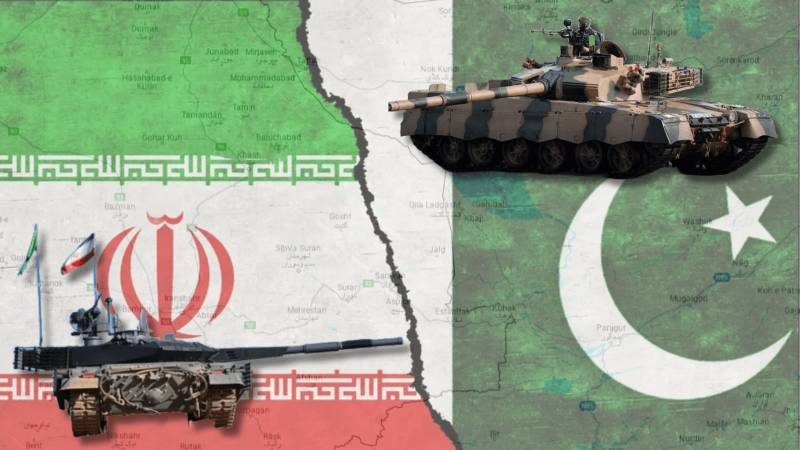Pakistan and Iran : In a series of escalating events, Pakistan and Iran find themselves entangled in a conflict marked by airstrikes and retaliatory strikes, raising concerns about regional stability. The situation unfolded after Iran targeted the Jaish al-Adl group’s headquarters in Pakistan, prompting a swift response from Islamabad. Here’s a comprehensive overview of the unfolding crisis.
Initial Strikes and Retaliation:
Pakistan initiated a retaliatory strike, codenamed “Marg Bar Sarmachar,” against alleged terrorist hideouts in Iran’s Siestan-o-Baluchistan province. The Pakistani Foreign Ministry reported that the operation resulted in the elimination of a number of terrorists. However, conflicting reports from Iranian media claim seven casualties, including four children.
The roots of this conflict trace back to Iran’s attack on Jaish al-Adl’s headquarters in Pakistan, an act that Pakistan deemed a violation of its sovereignty. The Balochistan Liberation Army (BLA), labeled a terrorist outfit, was among the targets in Pakistan’s retaliatory strikes. The BLA’s history of attacking Chinese sites in Balochistan, coupled with warnings to China, adds a complex layer to the ongoing situation.
تصاویری از تخریب منازل مسکونی شهروندان بلوچ در شهرستان سراوان و مناطق مرزی که بر اثر حملات موشکی ارتش پاکستان کاملا تخريب شدند.
— حسام بلوچ (@balochestan1422) January 18, 2024
پنجشنبه ۲۸ دی ماه ۱۴۰۲،#بلوچستان #سراوان pic.twitter.com/F0cFUMKsdh
Footage shared online, and verified by Al Jazeera, shows some of the damage caused by Pakistani attacks in Iran.
International Responses:
India, maintaining a position of non-interference, emphasized that the conflict is a matter strictly between Iran and Pakistan. New Delhi’s Ministry of External Affairs stressed its commitment to zero tolerance for terrorism but acknowledged nations’ rights to self-defense. As the crisis unfolds, international observers express growing concern over the potential for further escalation and the impact on regional stability.
Our response to media queries regarding Iran's air strikes in Pakistan:https://t.co/45NAxXTpkG pic.twitter.com/1P4Csj5Ftb
— Randhir Jaiswal (@MEAIndia) January 17, 2024
Diplomatic Fallout:
The conflict has prompted diplomatic fallout, with Pakistan recalling its ambassador from Iran and suspending high-level visits between the two nations. The Iranian Ambassador to Pakistan may also remain in Iran temporarily. Both countries exchange stern warnings, with Pakistan asserting its right to respond to the perceived violation of its airspace and placing responsibility squarely on Iran.
Capacity to Respond:
Pakistan’s Foreign Ministry spokesperson, Mumtaz Baloch, emphasized the country’s commitment to respecting Iran’s territorial sovereignty but asserted its capacity to respond to any military aggression. The spokesperson highlighted Pakistan’s consistent communication with Iran about the presence of armed fighters on Iranian soil, underscoring the need for action against these groups.
💬 “Last night’s unprovoked and blatant breach of Pakistan’s sovereignty by Iran is a violation of international law…Pakistan reserves the right to respond to this illegal act.”
— Spokesperson 🇵🇰 MoFA (@ForeignOfficePk) January 17, 2024
*Statement by the Spokesperson on Last Night’s Violation of Pakistan’s Sovereignty by Iran* pic.twitter.com/w2ZlTsmNDe
Military Maneuvers and Exercises:
Iran, in response to the escalating tensions, announced large-scale military exercises near the border with Pakistan. The IRGC Khatam al-Anbiya air defense base plans extensive maneuvers covering a significant area, involving manned and unmanned aircraft targeting specified objectives. The announcement adds another layer of complexity to an already volatile situation.
Global Concerns and the Broader Context:
The Pakistan-Iran conflict unfolds against the backdrop of global geopolitical dynamics, including the Hamas-Israel conflict in the Middle East and rising attacks on vessels in the Red Sea. The involvement of multiple actors and the potential for further complications raise concerns among the international community.
As the situation continues to evolve, the world watches with apprehension, hoping for diplomatic resolutions to prevent further escalation and instability in a region already grappling with complex geopolitical challenges. The impact of these events extends beyond the immediate conflict, underscoring the interconnected nature of global affairs and the need for collaborative efforts to maintain peace and stability.







